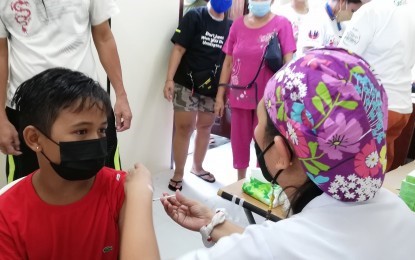MANILA — Davao City Representative Paolo Duterte asked the Senate on Wednesday to prioritize the proposed Magna Carta for Barangay Health Workers (BHW) to strengthen the delivery of community-based primary health care services in the Philippines.
In a statement, Duterte said the new law, which passed its third and final reading in the House of Representatives last week, will encourage more people to volunteer and train as BHWs because of the increased remuneration and benefits.
“There are at least a dozen proposals in the Senate proposing a magna carta for barangay health workers that still need to be harmonized and combined into a substitute bill. “We expect that when Congress reconvenes next month, the Senate would prioritize the approval of its equivalent legislation to the Magna Carta,” Duterte stated.
He stated that the BHWs are a critical component of the community-based healthcare approach, but they have yet to be implemented “They should be properly recognized and given the compensation and benefits they deserve.”
Duterte, a primary author of the House-approved version, emphasized the “heroic role” of barangay health workers as healthcare front-liners, especially during the pandemic.
He stated that the legislation directs the Department of Health (DOH) to determine the optimal ratio of BHWs to households.
He further stated that the DOH should ensure that the overall number of BHWs in the country does not fall below 1% of the total population, or at least one BHW for every 20 families.
“”This ratio should assist in addressing the dearth of primary health care services in many communities, particularly in outlying places,” Duterte remarked.
The bill aims to provide BHWs with a comprehensive package of compensation and benefits that includes, among other things, hazard allowance, transportation allowance, subsistence allowance, one-time retirement cash incentive, health benefits, insurance coverage and benefits, vacation and maternity leaves, cash gifts, and disability pay.
The bill also requires the Department of Health (DOH) to provide BHWs with continuing education and training programs after they have served for at least five years.
It also requires municipal, metropolitan, or provincial governments, as well as the Department of the Interior and Local Government (DILG), to develop a grievance procedure to resolve complaints about discrimination and the unjust removal of BHWs from service.


